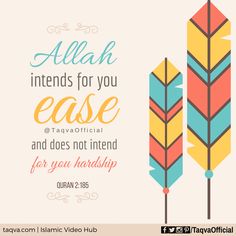In the last episode, we learned a little bit about what Ramadan is all about that it is a mercy from Allah and also that’s an off season training for the rest of the year, doing good deeds, building Taqwa and also some other things.
In this episode, we’re going to learn some of the etiquettes of Ramadan.
Remember in Islam we use the lunar calendar.
We know that Ramadan starts when the new moon is sighted, or if we can’t see the moon, then it’s when the 30th day of Shaban, which is the previous month passes.
Today I’ve got a list of etiquettes which are actually a bland of two different sets of conditions which tell you who must fast and how you have to fast to make your fasting during Ramadan valid.
Who Must Fast?
1- The person who is fasting during Ramadan has to be a Muslim.
Why is that important?
Because if you’re not a Muslim, your fasting is not counted since you don’t have the ruling on you.
However if you’re not a Muslim and you’ve already set your intention to fast this Ramadan with Muslim friends, go ahead and do it because it’s still going to be really good experience for you.
It’s going to soften your heart in someway and also it has some health benefits for you.
2- The Muslim who is fasting has to be at the age of discernment. Some usually says about 10 years old is the age of discernment. So children under 10 years old it’s not obligatory for them to pray, they don’t have a book of accounts yet.
So only when you reach about ten years old that’s when you have to start fasting but also all the other rulings of Islam apply to you.
3- The fasting Muslim must be sound of mind (sane). An insane person is not aware. A person who is fasting, making an act of worship, needs to be aware of that making it an act of worship.
4- You have to have the proper intention to fast. So before fasting, you’re actually have to set an intention that you are going to fast the next day for the sake of Allah in obedience to Him with the hope of gaining rewards and forgiveness from Allah.
5- The Muslim who is fasting has to be able to fast, which means that you don’t have any obstacles to fasting such as if a woman is menstruating, having postpartum bleeding, breast feeding or pregnant.
So these are some things that could be obstacles to offering a proper fast. For other people it could be seriously ill, very elderly, or might be traveling. These are also other obstacles to fasting.
The different conditions that I just mentioned are actually their own rulings.
All those types of conditions can be divided into two different groups:
1- One group has to substitute the fasting days. It means that if they missed a day in Ramadan, they have to substitute a fasting day outside of Ramadan.
2- The other group is the group that has not have to substitute any fasting. So if they missed a fast in Ramadan, they don’t have to make it up outside of Ramadan but they do have to pay a ransom amount. That ransom amount is to feed a poor person for the day of fasting they missed. If you missed two days, you feed two people.
Who are these people and in which category they fall into?
The people who must substitute the fasting days are women who are menstruating, having postpartum bleeding, those who are ill, and those who are traveling.
People who don’t have to substitute the days but they have to pay the ransom of feeding a poor person that they missed are the pregnant or breast feeding women who fear for the wellbeing of her child and also for the very elderly person who are only able to fast with difficulty.
6- You must be able to tell what time it is. To be able to tell time means that you know when to stop eating and then you know when to start eating again during the day.

